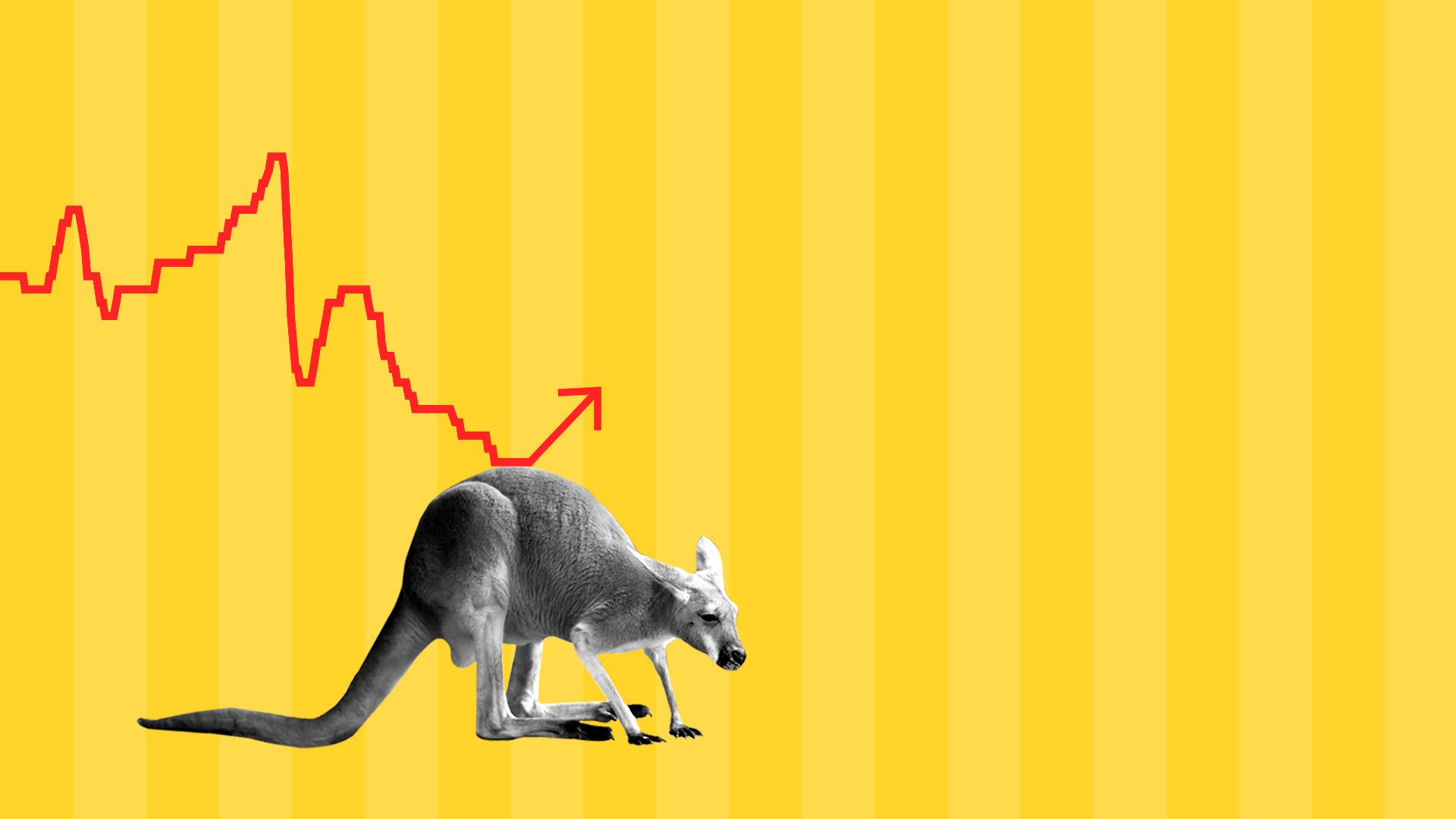Australia is fighting to go 28 years without a recession
Add Axios as your preferred source to
see more of our stories on Google.

Illustration: Rebecca Zisser/Axios
Australia hasn't had a recession in 27 years, but economists, market analysts and everyday Australians are starting to worry that things are taking a turn for the worse.
Driving the news: The Reserve Bank of Australia on Tuesday decided not to cut interest rates, which are already at the lowest level in the country's history, holding steady for the 30th meeting in a row. But many expect that it's only a matter of time.
- "The economy faces a lot of headwinds," Richard Franulovich, head of FX Strategy at Westpac, tells Axios.
Among the most pressing are a declining property market, weak consumer spending, depressed business sentiment and perhaps most pernicious, "the economy is just not generating enough inflation," Franulovich adds.
Details: The country's CPI in March fell to 1.3%, moving further away from the central bank's target of 2–3%. (Inflation hasn't hit 2% since June, which was just the second time since 2014.) Unemployment has picked up and remained stubbornly above 5%.
- The Australian dollar has been weak against the U.S. dollar and is trading near its lowest level since 2016.


What's next: The flurry of economic weakness has investors pricing in a rate cut by July, but the RBA on Tuesday pointed not to a typical 25- or even 50-basis-point cut but potentially taking rates all the way to 0.
- Bank of America analysts say its likely Australia will also get a jolt of fiscal stimulus from a new government no matter which party wins the May 18 general election.
- During Australia's 27-year recession-free run, the RBA has generally held rates higher than the U.S. Federal Reserve, as you can see in the chart above.
The bottom line: Australia has benefited significantly from China's rise, as a major supplier of iron ore and other raw materials to the country. But China's import economy is clearly showing down, evidenced by data Wednesday showing Chinese imports fell for a fifth straight month.
- With the trade war between the U.S. and China again bubbling, Australia likely will need all the stimulus it can get.
Go deeper: The world can't afford a trade war right now
